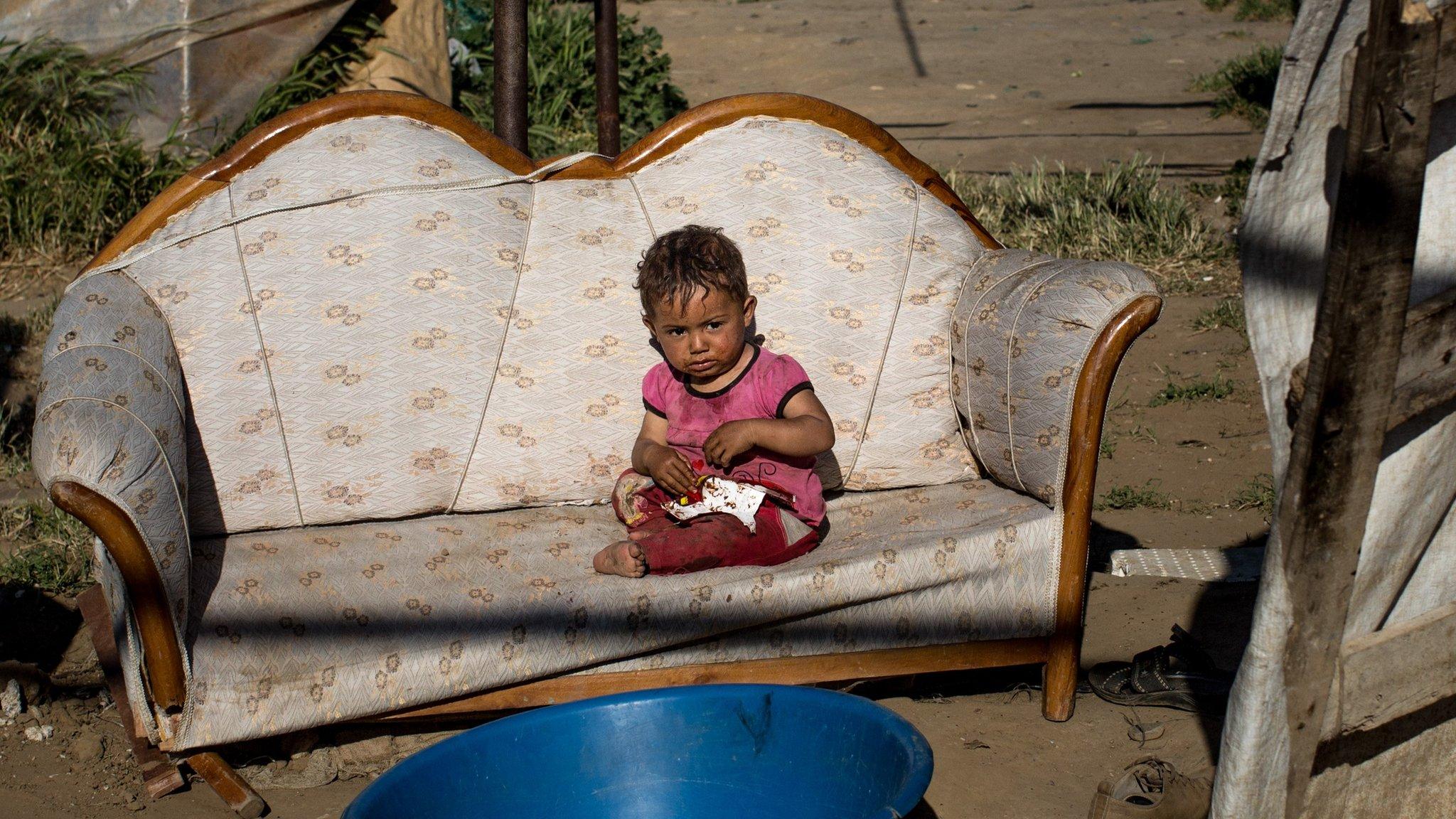David Cameron budges on UK taking more child refugees
- Published
David Cameron; "We will not do anything to make these people undertake this perilous journey."
In the last couple of days David Cameron has been under more and more pressure to change his mind and allow more child refugees, on their own and vulnerable in continental Europe, to come to the UK. And despite his refusal to budge just seven days ago, budge he has.
But the plans the government is putting in place are not crystal clear. So what do we know about the "plans" and what details are still missing?
Since September charities and some MPs have been calling on the government to offer homes in Britain to some of the thousands of child refugees who have already made it to mainland Europe. The government has continually said no.
Ministers have been firm for months on the principle that it is far better to help those caught up in the migrant crisis in the region - in the camps and temporary accommodation in the Middle East and Africa than help those who are, they argue, in relative safety in European countries like Italy, France or Greece.
The prime minister and his team have gone on the record on countless occasions making that case, and pointing out that the UK has been a far more effective and generous donor to the aid efforts in the region than any other European country.
That's now changed. Downing Street diplomatically calls their new strategy a "twin track" - in other words, Number 10 has given way on a long held principle. Children who have made their way alone to Europe as migrants and who arrived in Greece, Italy or France before 20 March will now be eligible to come to the UK.
Those who are selected, probably by aid workers on the ground in those countries, will be given five year residence permits for the UK, what was described to me as "humanitarian visas".
What we also know is that the government was likely to lose the vote on this in the Commons next week. With the referendum campaign making everything tense, Number 10 was evidently just not willing to let that happen.
But much about the plan is not yet clear. One source familiar with the conversations told me "there have been five different positions in the last 36 hours".
Most crucially, what we do not yet know is how many children will be eligible, and how many will actually come. Discussions will now take place between the government and local councils over how many children on their own they could accommodate. There is of course already considerable strain on resources in local authorities right across the country
What we also don't know is if there will be any extra cash available for councils who say they will take some in. But one source close to the negotiations told, "if this is done properly it will mean thousands". Finally, what is impossible to predict is what effect this will have on the "pull factor" - the concern ministers always voiced, that allowing more refugees to come to Britain once they were already in Europe would only encourage more to make the dangerous journey across the sea.
But now the prime minister has ditched his principle and promised to open the door, campaigners, Labour, the Liberal Democrats and their own backbenchers will be pushing to make sure he does.
- Published4 May 2016
